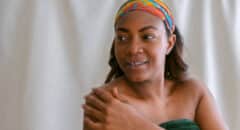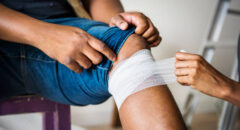
Without early or accurate diagnosis of any condition, proper care and treatment plans are prolonged. Studies show that Blacks have lower access to dermatologists and quality healthcare providers. In return, Blacks are discovering they have hidradenitis suppurativa much later than they should.
Hidradenitis suppurativa (HS) is a chronic skin condition that causes long-term inflammation of the skin. It’s a mild to severe condition that results in lesions underneath the skin. These lesions can also grow into abscesses (pockets of pus). It’s most common to see HS where the skin rubs together or in skin folds, such as under the breast, the groin, armpits, and buttocks.
Black people are three times more likely to develop HS, and tend to have more severe experiences with HS than any other race. This could be attributed to genetic factors, environmental factors and behavioral factors.
Such as:
- Obesity/heavier body weight results in extra rubbing and friction of the skin, more sweating and moisture that gets trapped in the skin, and more overlapping / skin-fold surface area.
- Family health history /specific genes increase the chance of developing HS.
- Smoking cigarettes is a risk factor and HS symptoms tend to be more severe in Black people who smoke cigarettes.
Symptoms of HS as it pertains to Blacks:
- Boil-like lumps (can range from pea-sized to marble-sized)
- Tunnels/channels in the skin that leak blood or pus
- Leaking bumps or sores
- Blackheads(they appear in small, pitted areas of the skin)
- Intense pain on or around the affected area
- Scarring
- Swelling
Also common:
- Body odor
- Excess sweating
- Itching
RELATED: 8 Surprising Things Making Your Hidradenitis Suppurativa Worse
Visually, you can expect:
- Flesh-colored, purple or dark nodules(small firm lumps)
So, knowing that Black people are three times more likely to develop HS, you would think that Black people are getting diagnosed and treated for HS more often, right? The unfortunate reality is, that Black people tend to go longer without a diagnosis or treatment. How so? I believe racial disparities play a huge factor.
Black people have a lack of access to quality care/healthcare physicians, there is a lack of research on how HS affects Black people, and we are underrepresented in clinical trials and healthcare settings overall. This directly affects how we are








